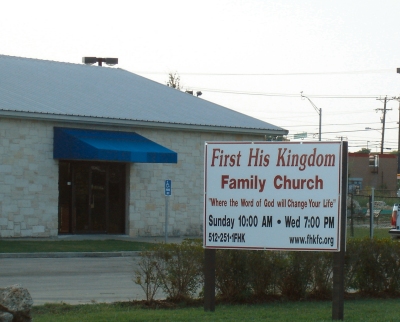My Statement of Faith: Gays and the Church
I’ve been a liberal Christian for many years now, and I have several very close gay Christian friends, so it should be obvious where I stand on the issue of the status of gays and lesbians in the church. I’ve thought about, prayed about and studied this problem off and on for a long time. But lately, I’ve been thinking about how to communicate my beliefs and thought processes to others succintly. I have boiled it down as follows:
Question: Does the Bible condemn ‘homosexuality’?
Answer: No. ‘Homosexuality’ as we currently define it it a modern, and very broad, concept, that includes many aspects: emotional intimacy, sexual acts, etc.
Question: Does the Bible condemn emotional intimacy between people of the same sex?
Answer: Absolutely not. It is my belief that if you put aside sex acts, there is no difference between close emotional friendships of many different types: siblings, close friendships, spouses, etc. For instance, my mother, my mother-in-law, and my aunt have lived together for several years. Their emotional relationship shows many of the same characteristics as a married couple.
Question: Does the Bible condemn same-sex sex acts?
Answer: For lesbians, no; nobody seems to claim that the Bible says anything about lesbian sex acts. As for male/male sex acts, my answer is possibly.
NOTE: This question is the one most people focus on: After reading a lot of exegesis of the passages in question, essays on the authority of the passages, etc., I’m willing to say that it’s possible the Old and New Testaments condemn male-male sex acts.
Question: Does any of the above matter in any case?
Answer: Not one bit, for two reasons.
First, the people who want to exclude gays from church base their opinion on the fact that they believe gays are unrepentant sinners (by their logic, gays continue to willingly participate in acts these people consider sinful; see the previous question). But if we go down that path, then we have to take a hard look at other types of unrepentant sinners whom we welcome in church. Jesus condemned divorce pretty unequivocally and harshly, yet we allow divorced persons into our communities of faith. Hell, I consider myself a pretty unrepentant sinner in regard Jesus’ directives to care for the poor and needy. I have good intentions, but when it comes right down to it, I’m pretty reluctant to give up any of my relatively cushy lifestyle for the well-being of others.
More importantly, though, I believe Jesus came to tell us to quit looking at the trees, and see the forest instead, worry about the spirit of the law, not the letter:
He said to him, ‘ You shall love the Lord your God with all your heart, and with all your soul, and with all your mind.This is the greatest and first commandment. And a second is like it: You shall love your neighbour as yourself. On these two commandments hang all the law and the prophets.’ (Matthew 22:37-39)
As long as you struggle to live your life faithfully as you understand it, and in communion with others, that’s the big picture.



